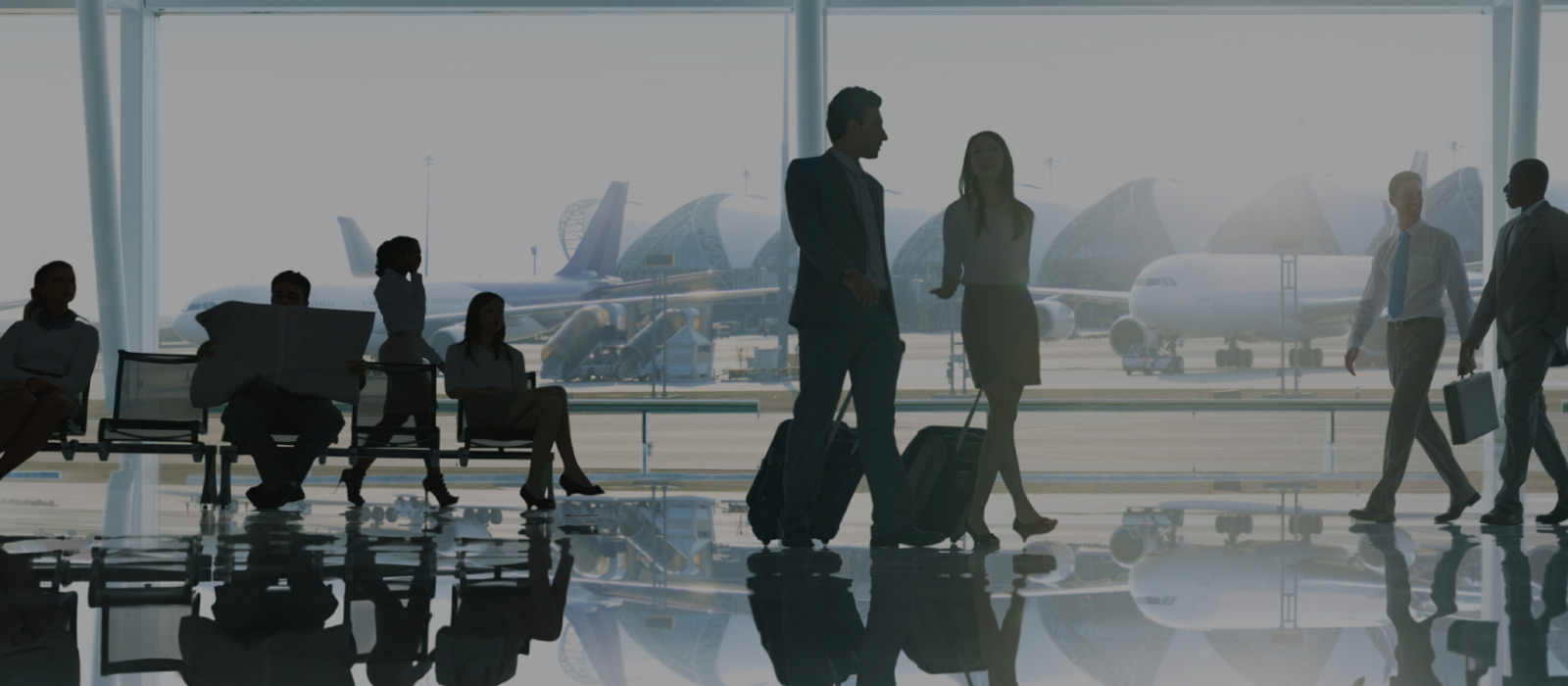Colombia-MICE is part of the Pelecanus Travel Group. We are located in Bogota, Colombia. We are specialized in corporate travel and all services around Meetings, Incentives, Conferences, and Exhibitions.
When you think of the concept ‘tourism’, you probably think of a paradisiacal beach full of people with no other duties than surfing or sunbathing, right? Now, how come someone can be a tourist and still have work to do like attending a business meeting? Well, there are a lot of people that fill in this category and the situation is actually called business travel.
In this blog, we will walk you through the definition of business travel, the motives behind business travels, some issues it may represent in companies and, of course, the solution to them.
Content
What is business travel?
In simple words, business travel is a journey specifically undertaken for work purposes. We are talking about a type of tourism that has been quite related to international trade and that is becoming more common as time passes by. The concept implies travel away from the workplace requiring one overnight stay, regardless of the frequency of the trips or the distance traveled.
These people traveling because of work are known as business tourists or business travelers. They range from directors and employees of big and small companies to members of government bodies or non-profit organizations as well.
Although this concept – also known as corporate travel – might have sounded unfamiliar to you, business travel is actually a large industry.
- In 2018 it contributed 1.23 trillion US dollars to the global economy!
- 13% of international travel is made for business and professional purposes –according to The International Tourism Highlights report by the World Tourism Organization.
- And this number is expected to increase in the next years.
Another thing to note: Business travelers are known to have higher requirements than leisure travelers and consequently, higher spending. The global spending of business tourism reached 1,283 billion US dollars last year, which means a 53% increase in a decade (2009 spending was 839 billion US dollars). So, it is clear that business travel is an important branch of the tourism industry.
Other characteristics of business travel:
- Business tourism often occurs at times different than the traditional holiday seasons, representing an extended source of income for those in the industry.
- Business tourism uses, of course, the infrastructure of leisure tourism. How could it occur without airports, trains, restaurants, and hotels? However, it has its own infrastructure: convention centers and specialized multipurpose event venues.
- Business tourists travel to the selected destination to work, but it doesn’t necessarily mean that they have no leisure time during their stay.
- Several airlines and hotels especially focus on catering to the needs of business tourists.
- Business tourism is the prevailing type of tourism in many urban areas and it helps to boost the local economy.
Reasons for business travel
Now, you may be wondering what are the reasons why workers travel for business purposes. Well, these are the main ones for companies.
- Meeting suppliers and clients to get to know them better or close a deal
- Networking, adding names to the contact list, and creating new business connections
- Audit visits to factories or other branches of the business located in other cities or countries
- Marketing own’s products and services or knowing/testing other’s products and services
- Attending meetings and events related to the industry to keep up with the trends and presenting own’s business
- Incentive travel, which are leisure trips organized to motivate employees and improve their team skills within the company
These were some of the purposes for business travel but there may be others. Just think of whatever activity held in another city or country that can bring advantages or benefits to a business.
MICE Travel
There is an acronym that integrates the four main categories of activities carried out in business travel: MICE. MICE stands for Meetings, Incentives, Conferences, and Exhibitions. But what exactly do these words mean?
Meetings
A meeting is a coming together of two or more people in one place to carry out a certain activity. In this case, a business-related activity. It can be scheduled according to a specific need or situation, or with a set frequency (monthly, annual meetings). We are talking about board annual meetings, shareholders meetings, management meetings, strategic planning meetings, etc.
Although technology provides several tools to carry out such meetings – and this seems like the most reasonable choice, many business people still prefer to travel and meet their partners personally.
Incentives
An incentive is a job perk that seeks to motivate workers within a company and means traveling to share group time and perform team-building activities. This often happens as a reward for good job performance and expenses are covered by the company.
An incentive trip can be done as a stand-alone trip or can be included in the program of a larger trip with other activities focused exclusively on business. It goes from a day trip to fam trips and resort retreats.
Incentive travel is key in building corporate culture and business owners are realizing it. A survey by the Incentive Research Foundation in 2018 reported that 54% of all buyers increased budgets for incentives and spent an average of USD 4,000 per person! As for the included activities in incentive travel programs, Wellness is a current favorite.
Conferences (conventions or congresses)
Conferences, conventions, and congresses are larger meetings that have different goals like discussion, problem-solving, but generally participation and exchange of information regarding a specific topic or field.
The planning and execution of these events are certainly more complex and require specialized teams. Because of this and the importance of this sector in business tourism, there is even an International Association of Professional Congress Organizers – IAPCO, that seeks to raise the standards of service of the meetings industry.
These 3 terms are usually used interchangeably but also depend on the number of attendees. For example, the larger meetings with thousands of people are called congresses rather than conferences. The most representative type of congress may be the annual gatherings of industry associations.
Exhibitions (or events)
Exhibitions are large events at which products and services are displayed to an audience. The audience can be the general public or a specific business group. Also, the exhibition can be held by many different companies or just one, in the case of a product launch. Exhibitions also take great planning, coordination, and specific venues with the appropriate facilities.
Problems of business travel
Now that you are clear about what business travel is and implies, it is time to get familiar with the problems that business travel may represent for companies.
Expenses
As we mentioned earlier, business travel is a specialized segment of tourism that demands higher-quality services than leisure tourism. Because of this, it represents more expenses for the company involved. Depending on the size and nature of the company, the budget for business travel can be secondary or even get close to payroll.
This is why they look for the most cost-effective options in air travel, accommodation, ground transportation, and meeting facilities. And finding the best service providers at a reasonable cost in a foreign destination can be really complicated.
Planning
Organizing a corporate event can certainly become tricky. Even more, when it is intended for large groups of people. Companies have to consider:
- the date of the event (is it during peak tourism seasons?)
- number and type of attendees
- the location and its infrastructure
- means of air and ground transportation
- facilities in the hotel
- facilities in the convention centers or event venues
- distances between airports, hotels, meeting venues and entertainment places, etc.
- duration of the meeting/conference/activity
- which costs will be covered by them
- among others
Now, this is a lot for one person. Is this person only in charge of planning the corporate events within the company? Or do they have other tasks and roles to perform? It is better to have a team focused on planning the events and managing logistics. But is the company able to maintain a logistics team or perhaps is this over budget? Quite a problem, isn’t it?
Following the itinerary
Suppose you have every point of the list above set up. You are just looking forward to the day of the trip. How can you make sure that all employees or participants in the travel follow the itinerary planned? How to manage the schedule and give speeches and prepare the next day’s presentation at the same time?
Even when an event is planned and there is a schedule printed for everyone, things can get out of control. There needs to be someone whose only job is to ensure everything goes smoothly as planned. And if there is a hassle, solve it completely.
So, how to solve all this?
Solution for business travelers: corporate travel agencies
The best way you can manage your corporate travel needs is by trusting an agency specially designed to cater to these needs.
Corporate travel agencies – or MICE travel agencies, are travel and logistics management experts that can help you host the perfect business event. If you are still not certain of the advantages of working with an agency, here are some:
- Corporate travel agencies have expertise in the tourism industry and know about the latest trends in business travel.
- Agencies know how to optimize costs without compromising quality. They are usually partnered with airlines, hotels, and convention centers so you might save money than hiring services by yourself.
- When they are based on your chosen destination, they know the best local accommodation, event, and entertainment sites.
- They do all the work for you: from choosing venues and booking flights and hotel rooms to negotiating with providers, making the itineraries, and coordinating logistics. This saves you time and stress.
- Thanks to their customized customer support, you can get the ideal business trip that exactly matches your needs and requirements
- MICE travel agencies have specialized software to manage providers, costs, and schedules so it will be easier to supervise all details of the trip.
- Probably the best advantage of working with a corporate travel agency is that your employees and business travelers will be more than satisfied with your event.
Hopefully, we’ve cleared all your doubts regarding business travel. If you have any questions, please leave your comment below.



